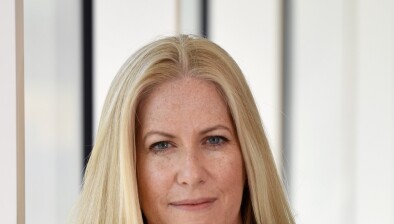Scottish businesses facing barriers to growth reach five-year high

Joanna Morris
More than eight in ten Scottish small business owners (83%) cite barriers holding their businesses back from growing – with concerns over fixed costs and the cost of hiring skilled labour on the rise – according to Novuna Business Finance.
The findings from Novuna’s Business Barometer tracking research come at a time when the UK economy is grappling with growth. Despite the IMF recently revising its UK economic forecast for the year, overall UK growth remains sluggish – with analysts warning that the disruption caused by US trade tariffs will negatively impact UK growth in the second half of the year. Set against this context, the Novuna poll of a nationally representative sample of 1,242 small business owners gives cause for concern.
The percentage of Scottish small businesses saying they are experiencing barriers that are holding back growth has been deeply-rooted at a consistent level for five years – and has hit a three-year peak for summer 2025.
Percentage of Scottish small businesses that cite barriers holding back growth
| 2023 | 2024 | 2025 |
| 77% | 74% | 83% |
The key barriers to growth for Scottish small business owners this summer
- Fixed costs: In Scotland, concerns over fixed costs have soared from 24% to 41% in just 12-months, the highest in the UK (compared to the national average at 31%). This suggests that, for Scottish small businesses, the cost-of-living crisis is far from over.
Percentage of Scottish small businesses that cite high fixed costs as a growth barrier
| Q2 2021 | Q2 2022 | Q2 2023 | Q2 2024 | Q2 2025 |
| 19% | 29% | 27% | 24% | 41% |
- Market uncertainty: Given the recent attention on US tariffs, fluctuating forecasts for the UK economy and uncertainty over UK trade deals abroad - around a third of Scottish small businesses (32%) say that the context of market uncertainty is holding back their plans to secure business growth.
- The cost of skilled labour: Relating to the fixed costs issue, around one in four Scottish small businesses (24%) say the cost of skilled labour is a significant barrier to growth – and this is up on 2024 (20%) and 2023 (14%). This follows concern in Scotland over the rise in employer’s National Insurance – with a Novuna survey earlier this year revealing that 28% of Scottish small business owners wanted to see Government lower National Insurance for small businesses.
- Red tape: This has also hit a three-year high in Scotland, with 29% of small businesses citing it as a barrier to growth. The figure has almost doubled in the last 12-months – up from 15% in 2024 to 29% this year.
- The long tail of Brexit is still felt by many small businesses in Scotland. Whilst the percentage of Scottish enterprises that cite Brexit legacy as a barrier to growth has receded in recent years (from a peak of 40% in 2022), the new Novuna data reveals that there are still around one in five Scottish small businesses (22%) that cite the consequences of Brexit as presenting real barriers to business growth today.
Jo Morris, head of insight at Novuna Business Finance, said: “Despite all the recent news on UK trade deals, the view from Scottish small businesses is far less positive.
“Our research shows that the percentage of Scottish small businesses predicting growth this quarter has fallen to a four-year low (29%). Added to this, we also have a three-year high in the proportion of Scottish enterprises that cite barriers holding back their growth. Some of these issues are local and specific, but many relate to the macro-economic position.
“Nine years on from the EU Referendum, one in five Scottish enterprises say they are still struggling with the consequences of Brexit. And the dark cloud of US tariffs and sluggish economic growth gives small businesses a level of market uncertainty that is disruptive and hard to plan against.
“At Novuna Business Finance, we are working hard to support established small businesses plan for the future – but it’s a challenge for them to realise their full potential when they feel the economy is working against them.”





